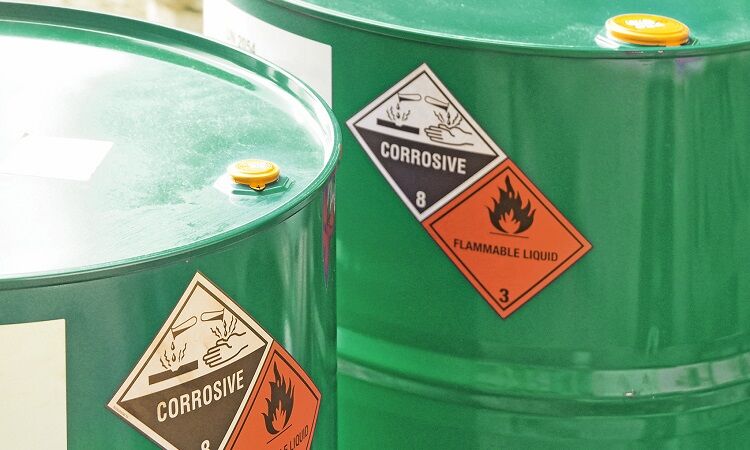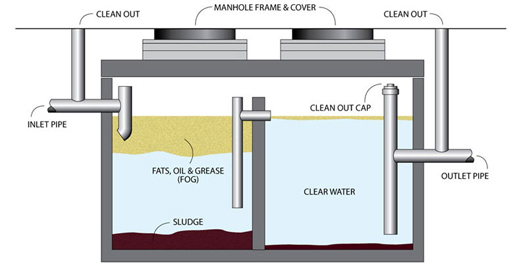Safe and Sustainable Liquid Waste Disposal: Your Go-To Provider
Safe and Sustainable Liquid Waste Disposal: Your Go-To Provider
Blog Article
Recognizing the Comprehensive Refine of Fluid Waste Disposal: Ideal Practices and Environmental Impact Factors To Consider
The administration of liquid waste disposal is a diverse problem that calls for a complete understanding of numerous finest practices and their linked environmental effects. From the kinds of fluid waste created to the approaches used for collection, treatment, and last disposal, each action plays an important duty in securing ecological communities and public health and wellness.
Kinds Of Liquid Waste
Understanding the various sorts of liquid waste is vital for reliable management and disposal practices. Fluid waste can be broadly categorized right into a number of kinds, each needing distinct handling and treatment techniques.
Industrial fluid waste commonly contains unsafe products, including heavy steels, solvents, and chemicals, created during making processes. These wastes demand rigorous regulatory compliance to protect human health and the setting. Domestic liquid waste mainly describes wastewater produced from families, consisting of sewer and greywater, which, although much less toxic, can still present substantial threats if improperly handled.
Agricultural fluid waste, including runoff from ranches, frequently consists of plant foods and chemicals that can lead to ecological degradation otherwise treated sufficiently. Medical fluid waste, created from healthcare facilities, includes infected fluids such as bodily liquids and chemicals, calling for specialized disposal techniques to prevent infection and ecological contamination.
Finally, oil and oil waste, generally produced by restaurants and automobile sectors, can cause severe obstructions in sewer systems if not taken care of effectively. Understanding these groups promotes targeted techniques for treatment, conformity with laws, and effective disposal methods, ultimately promoting ecological sustainability and public health security.

Collection Approaches
Reliable collection approaches are important for the proper administration of liquid waste, guaranteeing that it is gathered securely and efficiently before therapy or disposal. Different strategies are utilized depending upon the kind of fluid waste produced, the quantity, and the particular characteristics of the waste.
One common method is the use of dedicated collection storage tanks or sumps, which are created to catch liquid waste at the resource. These systems often incorporate pumps that assist in the transfer of waste to bigger storage space containers or therapy centers. Additionally, mobile collection devices furnished with vacuum cleaner modern technology are used in scenarios where waste is created intermittently or in hard-to-reach places.
For industrial setups, closed-loop systems can properly reduce leaks and spills, permitting the recuperation and reuse of liquid waste. It is likewise important to educate personnel on correct collection protocols to reduce threats connected with harmful compounds.
Additionally, applying regular upkeep schedules for collection equipment guarantees optimum efficiency and security. The integration of advanced tracking systems can boost collection performance by supplying real-time information on waste levels and prospective dangers. Generally, efficient collection approaches are foundational to sustainable liquid waste monitoring methods.
Therapy Processes
Therapy processes play an important function in the administration of fluid waste, changing potentially harmful products right into safe effluents or multiple-use sources - liquid waste disposal. These procedures can be broadly classified right into physical, chemical, and biological approaches, each customized to attend to certain contaminants existing in the waste stream
Physical treatment approaches, such as sedimentation and filtering, job by getting rid of put on hold solids and particulate issue. These methods are usually the very first step in the treatment chain, properly minimizing the tons on succeeding procedures. Chemical therapies entail the usage of reagents to counteract unsafe compounds, precipitate heavy metals, or oxidize natural pollutants, thus improving the safety and security of the effluent.
Organic treatment processes, consisting of turned on sludge systems and anaerobic digestion, maximize the natural capacities of bacteria to degrade natural matter. These techniques are especially efficient for wastewater consisting of biodegradable contaminants. Advanced therapy innovations, such as membrane filtering and progressed oxidation processes, are increasingly used to accomplish greater levels of purification.
Incorporating a combination of these treatment approaches not only makes sure compliance with regulatory standards yet likewise advertises environmental sustainability by recouping valuable sources from fluid waste.
Disposal Options
Exactly how can companies guarantee the liable and secure disposal of fluid waste? Effective disposal alternatives are critical for securing public wellness and the setting. The key methods consist of land treatment, incineration, and disposal complied with by discharge into local wastewater systems.
Land disposal entails the mindful control of liquid waste in designated garbage dumps, ensuring that it does not seep right into surrounding soil or water. Incineration, on the other hand, subjects fluid waste to heats, transforming it into ash and gases, which call for proper purification to minimize discharges. This technique appropriates for contaminateds materials that can not be treated via typical means.
In instances where fluid waste can be treated, organizations may choose biological or chemical treatment procedures to reduce the effects of unsafe parts prior to discharging the treated effluent into local systems. This route commonly lines up with regulatory needs, guaranteeing that the effluent satisfies safety requirements.
Eventually, companies should conduct thorough evaluations of each disposal option to determine its viability, taking into consideration variables such as waste make-up, regulatory compliance, and potential threats to health and wellness and the setting. By selecting proper disposal approaches, services can add to a click this link responsible waste administration approach.
Ecological Influence
The ecological influence of liquid waste disposal is an essential factor to consider for companies looking for to minimize their environmental footprint. Improper disposal techniques can result in substantial contamination of water sources, soil degradation, and unfavorable impacts on local environments. For example, harmful fluids can seep into groundwater, presenting dangers to drinking water supplies and water life. Additionally, the discharge of unattended or inadequately treated waste right into surface waters can lead to eutrophication, resulting in oxygen exhaustion and the subsequent fatality of fish and various other microorganisms.

To mitigate these effects, companies must embrace best practices such as applying strenuous waste treatment processes, promoting recycling and reuse, and adhering to regulative criteria. By taking an aggressive technique to fluid waste monitoring, entities can substantially lower their environmental footprint while sustaining lasting development goals. Ultimately, a thorough understanding of the environmental effects related to liquid garbage disposal is necessary for notified decision-making and accountable stewardship of natural deposits.
Conclusion
Reliable administration of liquid waste is crucial for guarding ecological honesty and public health and wellness. Inevitably, a thorough understanding of fluid waste disposal not just mitigates ecological effects but also promotes a dedication to accountable resource administration and environmental stewardship.
The administration of fluid waste disposal is a diverse issue that needs a comprehensive understanding of various finest practices and their associated ecological influences. From the types of fluid waste created to the techniques utilized for collection, therapy, and final this content disposal, each action plays an essential duty in securing ecosystems and public health and wellness.The environmental effect of fluid waste disposal is an essential consideration for organizations seeking to reduce their eco-friendly impact. Ultimately, a thorough understanding of the environmental impacts linked with liquid waste disposal is vital for informed decision-making and accountable stewardship of natural sources.
Inevitably, a comprehensive understanding of fluid waste disposal not only reduces ecological influences yet also promotes a commitment to responsible resource management and ecological stewardship.
Report this page